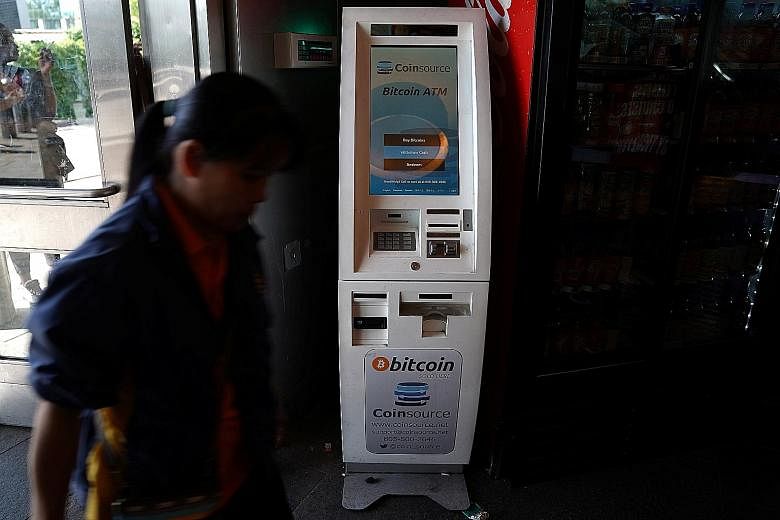Bitcoin and ethereum are cryptocurrencies that took on a new shine in recent months as prices skyrocketed to record highs - before sliding somewhat.
They are virtual currencies created by a mathematical algorithm.
The value of a bitcoin is highly volatile. According to virtual currency information provider CoinDesk, it hit a record high of more than US$3,000 (S$4,085) in June but crashed to US$1,938 on July 16 on fears of a so-called hard fork, in which the digital currency would effectively split into two due to end-July software upgrades creating competing marketplaces. As at 6.45pm Singapore time yesterday, a bitcoin was worth US$2,773.39.
Bitcoins are not backed by any government or central bank, and rely instead on thousands of computers globally that validate transactions and add new units to the system - technology known as blockchain.
It can be traded on exchanges in the same manner as stocks and bonds. It has also become a mode of payment for some retailers, and a way to transfer funds without the need for a third party.
Critics say bitcoins and other cryptocurrencies are used by criminal organisations and terrorists.
Investors can trade bitcoins and other virtual currencies on virtual currency exchanges such as Quoine Exchange. Some exchanges also allow them to swop bitcoins for legal tender such as the greenback and Singapore dollar.
In Singapore, there are currently two bitcoin ATM machines operated by Singapore-based Bitcoin Exchange at Worklor in Hong Lim Complex, and in Tiong Bahru Plaza.
Three years ago, there were at least seven such ATMs operated by others, according to Bitcoin Exchange founder Zann Kwan.
"When my first machine was launched at CityLink mall three years ago, the patrons were mostly male geeks. Now we have uncles and aunties, students and even tourists buying bitcoins from our machine," Ms Kwan said.
Bitcoin suffered a major setback following the collapse of Mt Gox, formerly one of the world's biggest bitcoin exchanges. It filed for bankruptcy in 2014 after losing some 850,000 bitcoins - then worth around US$500 million - and US$28 million in cash from its Japanese bank accounts.
Mt Gox was also hit with a slew of lawsuits in the United States by investors seeking to recoup millions of dollars in losses linked to a hacking attack that led to the exchange's bankruptcy.
In recent years, other legal disputes in the US have involved bitcoin exchanges against banks such as Wells Fargo, over the bank allegedly limiting the exchange's ability to move funds globally.
In Singapore, the legal dispute involving Quoine is believed to be the first such case of its kind over trades that were allegedly wrongfully reversed because of a technical glitch.
Grace Leong


